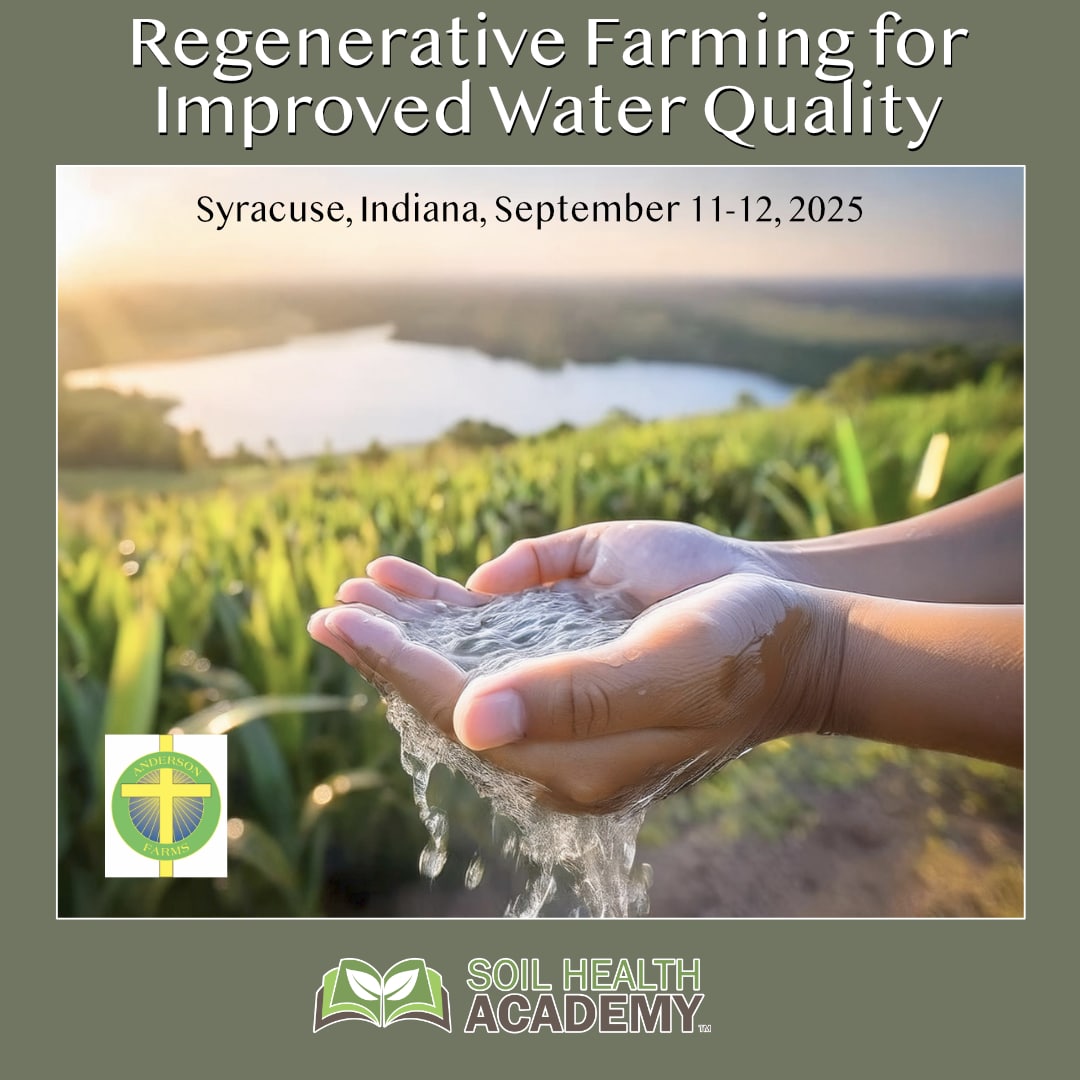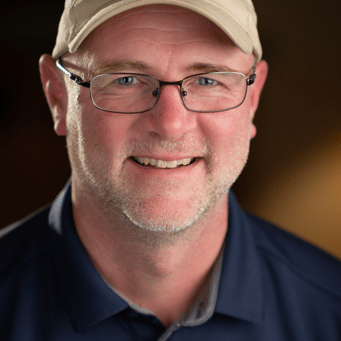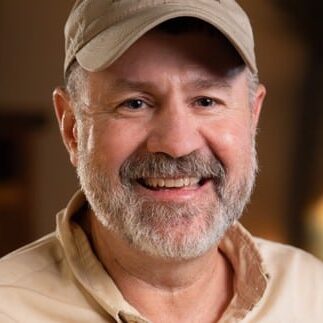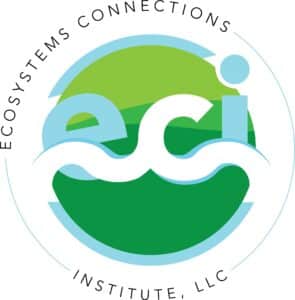About the Academy
What You Will Learn
- Discover the Wawasee Inlets Nutrient Study (WINS), a thorough five-year evaluation of water quality in Lake Wawasee
- Explore how farming in alignment with nature can restore ecosystem health, improve water quality in streams, rivers, and lakes, and promote long-term sustainability and ecological balance
- Learn practical strategies for soil testing and nutrient management that boost fertility, enhance profitability, and optimize resource efficiency
- Understand how soil functions and see the essential role of a healthy nutrient cycle in regenerative farming practices
- Learn about land management practices that can support and improve the ecosystem
- See how regenerative farming can enhance lake health, aesthetics, and recreational enjoyment, leading to clearer waters, fewer algae blooms, and improved conditions for fishing and swimming
- Learn how to engage watershed communities in regenerative restoration by combining human efforts with ecological principles for sustainable, long-term outcomes
- Hear from farmers and experts about their successful adoption of soil health practices and the positive impact on water quality and local ecosystems
Who Should Attend?
This course is ideal for anyone interested in the intersection of soil health, improving water quality, and regenerative land management. Whether you are a lake association member, watershed personnel, government agency personnel or farmer, this event will provide valuable insights on improving both land health and water quality.
Join us to explore how regenerative agriculture can improve land use, generate higher water quality, restore ecosystems for a healthier environment, and create healthier water systems and soil health.
Instructors
Agenda
Thursday, September 11
| 8:00 | Registration opens |
| 8:30 | Welcome & Introductions |
| 9:15 | Introduction of WINS and Anderson Farms |
| 9:45 | Water Quality |
| 10:15 | Break |
| 10:30 | Ecosystem Processes |
| 11:00 | Principles of Soil Health |
| 12:00 | Lunch |
| 1:00 | Group Field Exercises |
| 4:00 | Questions/Answers & Group Discussion |
| 5:00 | Adjourn |
| 6:00 | Preview of Destination Regeneration |
| 6:30 | Evening Meal (sponsored by Ecosystems Connections Institute, LLC) |
Registration & Getting There
Cost of Tuition
Tuition of $800.00 includes
• In-person attendance at the SHA, along with course materials, daily snacks, water, and lunch each day
• Access to quarterly alumni Q&A conference calls with SHA instructors and the graduate portal on the SHA website
Cancellation Policy
The down deposit of $500 is non-refundable, but can be transferable toward any academy held in 2025 or 2026.
Financial assistance through scholarships are available to help with the cost of tuition. To apply for a scholarship, please register for the academy, then submit a scholarship application.
Scholarships are made possible thanks to the generous support of private organizations and individual donors.
Classroom & Farm Location
Classroom
Brook Pointe Resort
4906 East 1200 North
Syracuse, IN 46567
Farm
Anderson Farms
Cromwell, IN 46732
Lodging Information
Hotel/Lodging
Brook Pointe Resort
4906 East 1200 North
Syracuse, IN 46567
To reserve, please call (574) 457-4466
Lodging costs are separate from tuition. While it is not mandatory to stay at the accommodations listed here, we encourage attendees to book nearby lodging for the convenience of traveling to the classroom and farm locations.
Breakfasts and dinners are also not included in the tuition.
Closest Airport
South Bend International Airport (SBN)
4477 Progress Drive
South Bend, IN, 46628
Fort Wayne International Airport (FWA)
3801 W. Ferguson Road
Fort Wayne, IN 46809
About the Host Farm
Meet Anderson Farms
The Anderson family has lived in northeastern Indiana since 1897, maintaining a strong connection to the land and to Lake Wawasee, the state’s largest natural lake. Anderson Farms was established by Doug and Carolyn Anderson in 1985, located in Kosciusko, Noble, and Elkhart counties, within the Lake Wawasee watershed at the southernmost edge of the Great Lakes basin. In 1994, their son Russell joined the farm full-time, and under his conservation-driven approach, the farm expanded. Russell married his wife Mary in 1999, and together they managed the farm as it continued to grow, eventually focusing on row crop production.
In 2013, their commitment to conservation evolved into a proactive regenerative approach. The farm began implementing practices like no-till, strip-till, cover crops, nutrient management, and experimenting with expanded crop rotations to regenerate their soils.
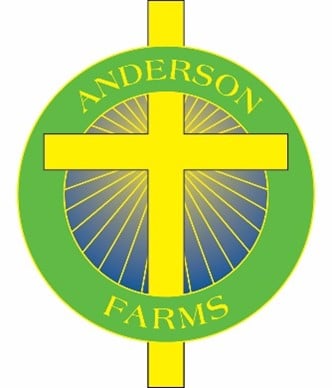
In 2023, Russell and Mary’s son David joined the farm full-time, working alongside Russell to explore new methods and techniques for improving soil health. David also reestablished a purebred Angus cattle herd, integrating livestock with the farm’s grain production. Their daughter Elizabeth helps out whenever her school schedule permits.
The Anderson family is deeply invested in understanding the role of healthier soils, particularly regarding soil structure, organic matter, water infiltration, and nutrient transport. They believe that the health of their soils and the health of their local lakes are inseparable and remain committed to both. The entire family looks forward to welcoming visitors to Anderson Farms in September 2025.

